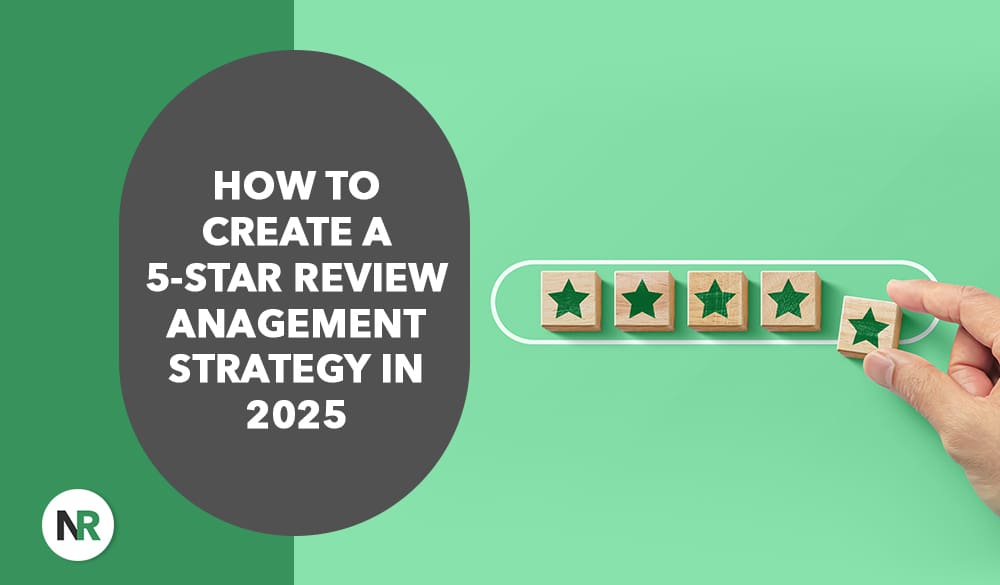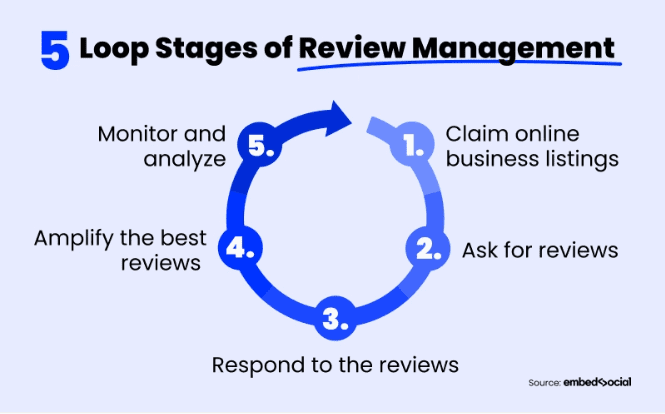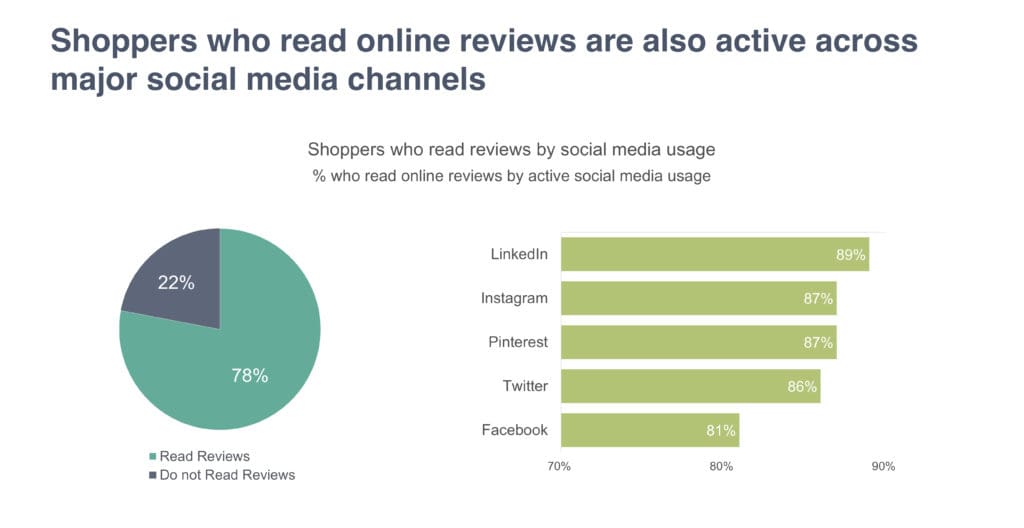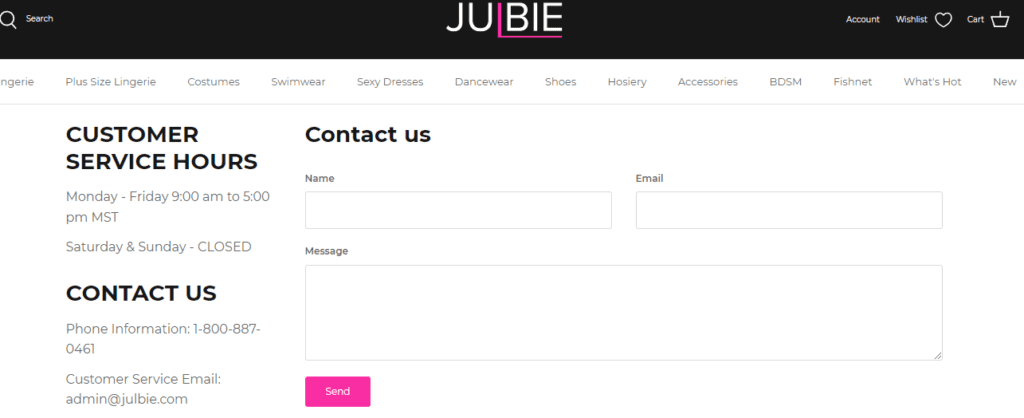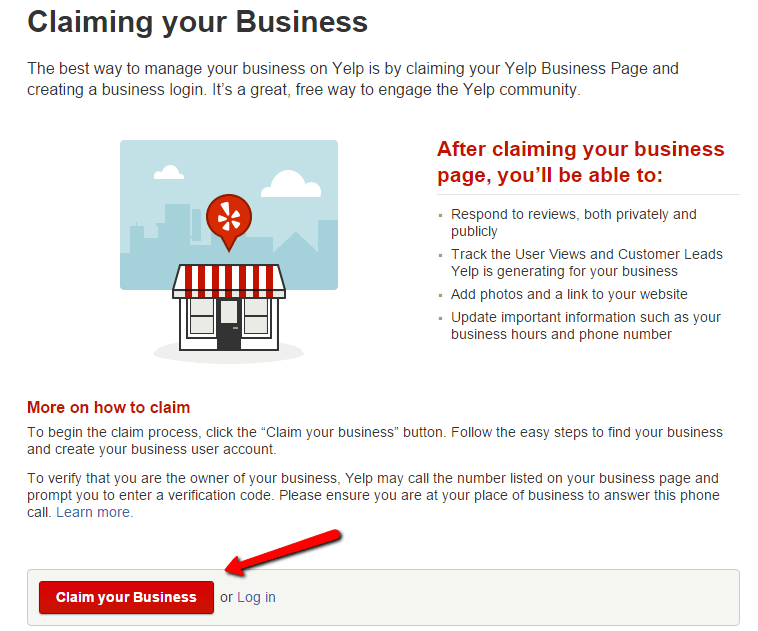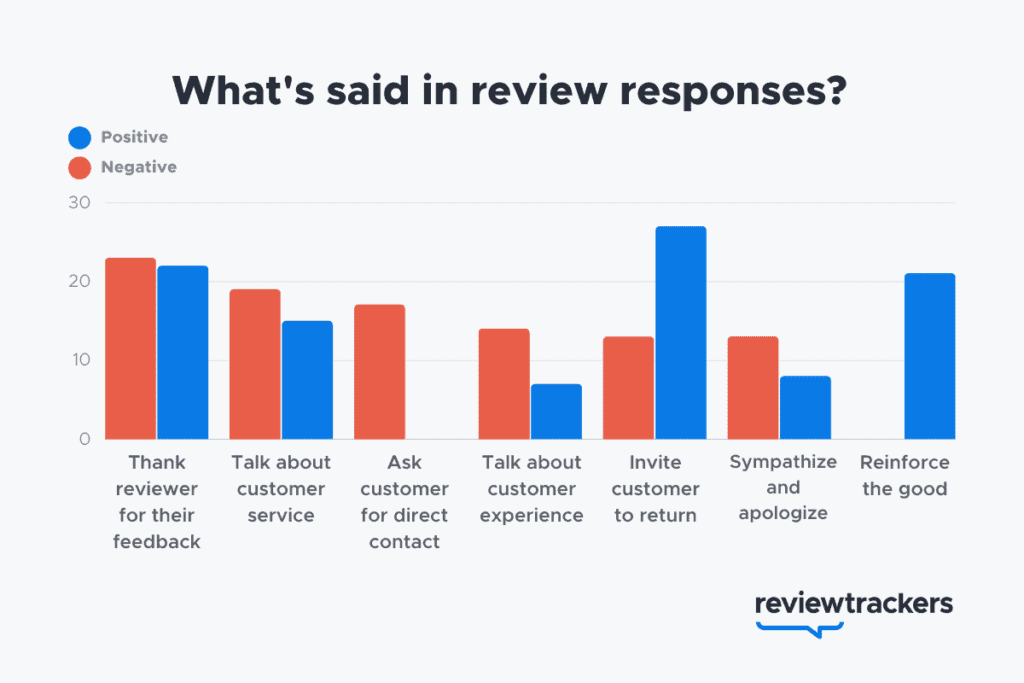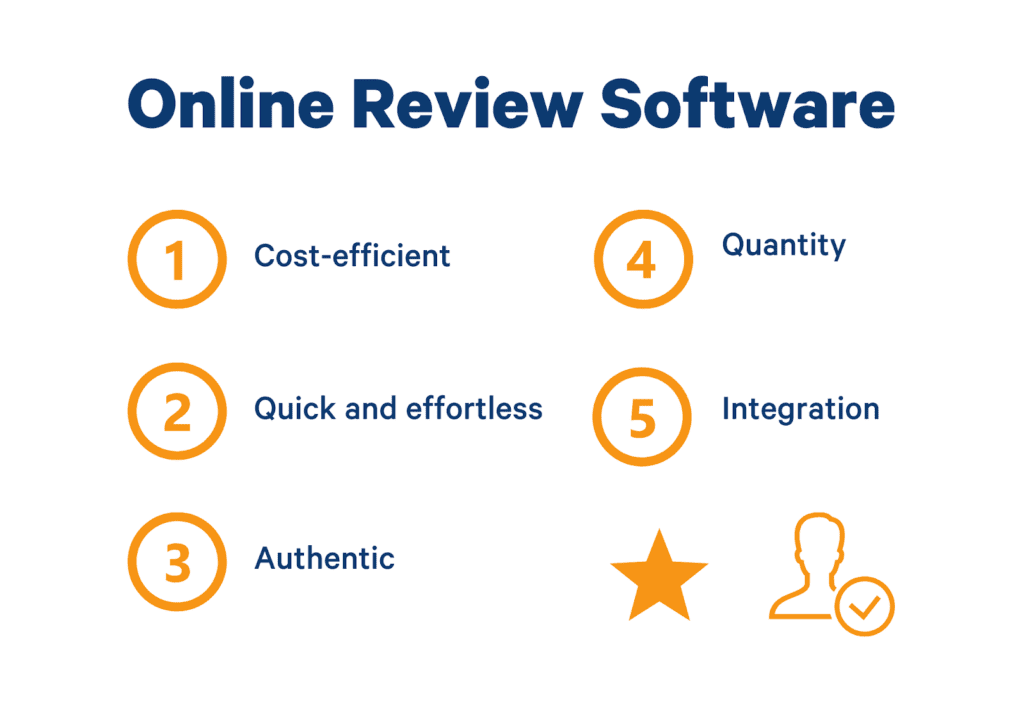Learn how to create a powerful online review management strategy in our guest post from Novum™ below.
Words are powerful, and as such, customer reviews can make or break a company. What your customers say about you, positive or negative, directly impacts your bottom line. Hence, an effective online review management strategy is necessary to stay ahead of the game and keep your business reputation clean.
Online reviews can sway the perspectives of your current and potential customers. They directly impact buying decisions since many customers see them as genuine sentiments of the kind of experience they should expect. As such, companies are now making online review management a key element in their marketing strategy.
In this article, we’ll discuss what online review management is and its role in today’s business climate. Additionally, we’ll have a guide to assist you in building a solid online review management strategy. By the end of this, you’ll know how to sustain your brand’s positive image through effective action plans.
What Is Online Review Management? Why Is Managing Online Reviews Important?
Online review management allows managers to effectively monitor, manage, and generate reviews across a wide range of platforms.
Moreover, it’s a process that helps companies formulate responses to reviews of their products, services, and employees. However, this shouldn’t be mistaken for reputation management or crisis management. Those are different topics altogether.
Through review management, business owners and employees can show their customers that they care about their opinions and experiences. As such, companies communicate and assure customers that they can develop the things that need improvement.
What’s more, having a great online review management strategy allows companies to respond to reviews appropriately and promptly. This is especially crucial when dealing with negative reviews because if they’re not taken care of, potential customers will be discouraged from continuing with the purchase.
But having an online review management strategy is not mainly about putting the fires out and managing negative reviews. When customers detail their positive experiences with a business, it creates a domino effect. Positive reviews can further entice potential customers to choose a company’s services or goods. That’s why elevating them is one of the key pieces of online review management.
Where To Collect Online Reviews From Customers
You can’t properly monitor and manage customer reviews if you don’t know where to look. Let’s look at the following platforms to check out what your customers are saying about your business.
Review Sites
You’re most likely familiar with review sites as these are well-known platforms for customers to share their good or negative reviews. Some of the most popular sites are Google, Trustpilot and Tripadvisor.
Review sites are helpful because they collect and display user-generated content from customers. Thus, they are a fantastic resource for gathering customer feedback and seeing if your products or services meet customer expectations.
Social Media Sites
Perhaps the most popular way customers let the world know about their experience with a brand is through social media platforms. Some of these platforms include the big three: X, Facebook, and Instagram.
Today, almost everyone is stuck to their phones and social media accounts. This accessibility makes it easy to leave positive or negative comments using social media. You have to be careful with social media since it has so many users, making it super easy to go viral for the wrong reasons.
On the other hand, positive comments can also go viral through social media posts, especially if posted by prominent figures.
Ultimately, what social media users say online is up to you, so always strive to enhance the customer experience.
Online Blogs
Anyone can create a blogging website with just a little technical knowledge. As such, some customers criticize or support businesses through their blog posts. Additionally, many bloggers allow for guest blog posts or post on other blogs to highlight opinions even more.
Generally, blog post reviews are detailed. In some cases, these blog posts take the form of listicles to provide readers with reviews of different products and services in one article.
A great example is this blog post about the best digital marketing websites. The writer created a list and gave online reviews regarding each website. At the end of this, you can see that readers can comment. The comment section allows the readers to either agree or disagree with what’s written.
Survey Answers
You don’t have to only rely heavily on other platforms. You can manage online reviews yourself by formulating surveys for your customers to take after making a purchase. This is one of the best ways to ensure you’re getting genuine feedback and not fake reviews.
It’s also an excellent way to gain constructive feedback since your team will develop the questions. You can guide customers to answer the questions you’re most curious about. This helps you control the narrative and collect the most vital information. Also, if bad comments are left, the customer service team can instantly take care of them.
Of course, it’s not as effortless as it sounds. There are a lot of things to consider when creating an effective survey. For instance, you need a strong survey introduction to get the customers to answer the questions. If you can’t entice them, your whole survey can become moot.
Following our discussion of where you can gather customer reviews, it’s time to give you guidance on how to create an impressive review management strategy.
8 Must-Haves for a Solid Review Management Strategy
Now that you have a better understanding of what online review management is, it’s time to start creating your strategy. Following these methods can turn bad experiences into good ones or maintain a high approval rating among your customers. Thus, make sure that you consider these during your strategic planning process.
1. Closely Monitor Your Brand’s Online Reviews
An effective review management strategy starts with this crucial step. Online reviews are one of the most important tools in your arsenal as an entrepreneur. They can be a source of inspiration, or they can be a source of despair, depending on what your customers experience.
As such, one of the key points of effective online review management is staying on top of what’s said about your company, whether it’s positive or negative. It’s easy to miss out on valuable business information if you don’t closely monitor what people are saying about you online.
Additionally, monitoring online reviews lets you identify any potential issues before they get out of hand. It’ll allow you to address them directly with customers or respond in ways that will help them feel heard and appreciated. Thus, it increases the chances that they’ll come back because they trust your business to address issues.
If the comments are positive, it’ll allow you to elevate those promptly. Doing so will help build a positive brand image. Plus, engaging with customers who had a great experience with your business is also a great way to build stronger customer loyalty.
One of the best ways to monitor your online reviews is by having a dedicated webpage that allows customers to leave a message for your brand. A great example is the brand Julbie, which has a customer service link on its website where customers can leave messages.
This is an excellent way for a brand to monitor and instantly handle any customer issues. In addition, getting feedback this way means that negative comments stay off public platforms. Likewise, if your brand gets positive comments, you can ask those customers for their consent to use their feedback in promotional materials.
2. Claim Your Business On Review Sites
As we mentioned, review sites are some of the most popular go-to platforms for customers to broadcast their experiences with companies. Therefore, it’s extremely important to claim your business on those sites so that you can monitor, control, and manage what’s said about you. Here are some of the advantages of claiming your business:
- It legitimizes your business on those sites.
- You can add a link to your official company website.
- You can respond publicly or via direct message to customers.
- It allows you to include and update your company’s contact information.
Also, claiming your business gives your customers an official platform where they know they’ll be noticed. This is a great way to communicate with them regardless of the kind of feedback they give. At the very least, you’ll get to control how you respond instead of not being able to do anything if you leave your business unclaimed.
3. Intercept Unhappy Customers Before They Leave Negative Reviews
One of the key elements of your review management strategy is planning how to intercept unhappy customers. By doing this, you get to hook your customers before they find a public platform to reveal their poor experience with your business. (And if they’re going to talk about a positive experience, it’ll be fantastic to decide how to get it out there for a broader audience.)
When it comes to harsh comments, it’s best to intercept them before they blast you publicly. But how do you do this?
Find ways to reach out to customers and encourage them to give a review during or immediately after the sales cycle. For instance, you can do this by providing a survey to answer just after purchasing an item from your website.
If you have an e-commerce shop powered by WordPress, giving out surveys to your customers is seamless. There are several survey WordPress plugins you can incorporate into your website to make creating, distributing, managing, and analyzing surveys easier to achieve. You can choose which one fits your business needs the most and include it in your strategy.
But what if your website is not powered by WordPress? In that case, you can develop a customized system that includes the features your brand needs and design data pipeline architecture to handle and store data for the survey answers.
As such, you can review and analyze each one, using the data to enhance your surveys and have a better sense of what your customers experience.
4. Create a Response Plan for Managing Online Reviews
A response plan is critical to review management, and it should include a list of steps you will take to reply to comments. This will help ensure that you’re responding to online reviews in a way that’s consistent with your goals and values as a company. Plus, it will also show reviewers that you care about them.
When formulating your response plan, you need to be clear on the following to ensure a smooth process:
Who Will Handle the Responses?
This should be easy since the responsibility will most likely fall on the customer support teams of your business. However, some of the marketing staff may also get involved if they’re the ones running the social media department.
If that’s the case, it’s important to have clarity by having a division of responsibility. That way, everyone will be clear as to who will respond on different platforms.
To guarantee that you have the right people for the job, you can utilize an AI-driven assessment tool. By selecting a strong customer support team, you minimize the risks of alienating customers with an agitated response from your team. Let’s be honest: Not everyone is built for customer service.
Which Comments and Negative Reviews Require a Prompt Response?
Responding to happy customers and their positive reviews is easy. A simple “thank you” or some happy emoji will do the job. It’s entirely a different story when dealing with negative comments, though.
As such, it’s important to plan which comments need to be prioritized. Your customer service and marketing teams can strategize and create a priority list regarding which type of complaint gets a response first. It’s crucial to respond quickly and professionally with an apology and offer of assistance.
5. Keep It Genuine and Respond Appropriately
It’s all about creating a positive experience for your customers, and that starts with responding to them genuinely. While you can use a list template responses, it’s best to still personalize your replies. For example, you could mention their name in the response so that they know you’re directly addressing them.
If you’ve received positive feedback, it’s easy to be genuine because you’re happy that your customers had an excellent experience. However, being genuine is more important when apologizing for a bad experience.
Responding authentically can help turn a negative situation into a positive one. Genuineness can be felt by customers. As such, when you de-escalate an issue, you can lead the customers into leaving a more favorable review once they feel that you’re listening and working hard to improve things for them.
Of course, this can be a hard task, especially when there are a lot of online reviews to address. Your teams can use content writing services to help them formulate responses properly and swiftly. These services can help write responses using the right tone of voice so as not to aggravate the situation and to avoid misunderstandings.
Let’s be honest: Even if it’s not your intention, a customer with a bad experience with your company can take your response in a bad way. That’s why AI-powered writing services and your team can work together to sound as genuine and polite as possible so your customers won’t take offense.
6. Utilize Review Management Software Solutions for Managing Online Reviews
When it comes to surveys and emailing your customers for feedback, it’s seamless to navigate through your own system and monitor their comments. However, it’s not as easy to do that on review sites.
Fortunately, there are review management software solutions you can utilize to help you monitor and manage customer feedback on other websites. Here’s what review management software could help you with:
- Identify fake online reviews on different platforms
- Use it to send customer feedback requests at the right time automatically
- Get an overview of all the key statistics about your online reviews so you can see trends and plan accordingly
- Use a consolidated platform to monitor and manage your customers’ online reviews so you can respond promptly
You’ll see trends in how customers feel about specific products and services and make changes accordingly — whether that means adjusting prices or improving staff training. With software solutions, it’ll be more seamless to implement your review management strategy.
To make this part easier for you, our advice is to hire a temporary virtual assistant (VA). The VA can do the research and create a shortlist of software that fits your business needs and budget. Therefore, you’ll just have to review the list and make a decision. This is going to save you a lot of time so you can focus on other parts of the strategy or overall business functions.
7. Make Time for Happy Customers
With the need to stay on top of negative reviews and unhappy customers, positive customer feedback sometimes gets overlooked. Make it part of your strategy to also allot plenty of time to respond to your customers who loved their interaction with your business.
Additionally, ensure that you have a plan to generate online reviews from your happy customers. For instance, use software solutions that allow you to pre-screen your customer’s satisfaction level before asking them for a review.
For example, when customers select “I had a fantastic experience,” they will be sent a survey or to your choice of review site. As such, great online reviews will also be posted there and seen by a broader audience. The goal is to have those positive reviews promoted on different platforms and turn others into potential customers.
Additionally, to help you somewhat control what can be seen on review sites, choosing the “I had a bad experience” box will alert the system. So, instead of sending customers with bad experiences to those sites, they’ll be given an internal customer feedback form. As such, they’ll still be heard, and you’ll still apologize, but at least it won’t be in a public forum for many to see.
8. Measure Results and Use Them to Your Advantage
Review management is a big part of any company’s culture, and it’s important to make sure you’re measuring the results of your efforts. Set up a system that allows you to measure the performance of your online reviews, including positive reviews and negative reviews.
You can do this by adding a “score” or “rating” feature to each review that allows users to give it an overall rating based on their experience with the company. This will help you figure out which aspects of your business are working well and which need improvement to help you strategize actionable plans.
Moreover, to further improve the overall customer experience, you should set up a system that allows customers to make suggestions for improvements based on their experience. This can encourage them to leave positive comments because they know your company is serious about improving.
Final Thoughts About Managing Online Reviews
Getting that coveted 5-star rating is harder than it seems. Review management is a continuous process that requires you to be proactive. It involves monitoring, managing, and generating online reviews as well as responding to them. You have to know how to enhance positive reviews and also respond delicately to negative ones.
With proper review management, customer trust and loyalty can be improved, which directly impacts your company’s bottom line.
Will a strategy be easy to implement? Not necessarily. But the importance of review management can’t be overlooked.
With its many elements and complexities, it’s a good idea to have some assistance to guarantee that your review management strategy is well-implemented.
Thanks to the online reputation management professionals at NetReputation, you can have that helping hand. Get in touch today by calling 844-461-3632 or filling out the contact form below. It’s time to start strengthening your brand’s reputation online.
Request a Free Consultation
Author Bio
Burkhard Berger is the founder of Novum™. He helps innovative B2B companies implement revenue-driven SEO strategies to scale their organic traffic to 1,000,000+ visitors per month. Curious about what your true traffic potential is? Learn more here.
About NetReputation
NetReputation is an award-winning leader in online reputation management. We have helped thousands of people establish, build, or repair their reputations in the digital environment. We’ll work with you to take charge of the digital narrative, building trust and brand awareness in the process.
Learn more about our full selection of reputation management services, including cutting-edge review management solutions, by speaking with our online reputation management professionals today at 844-461-3632.
